
Friedrich Glauser was a German-language Swiss writer.

Marie-Louise is a 1944 Swiss German and French language film directed by Leopold Lindtberg and an uncredited Franz Schnyder. The film, distributed in the U.S. by Arthur Mayer and Joseph Burstyn, was the first foreign language film ever to win the Academy Award for Best Original Screenplay.
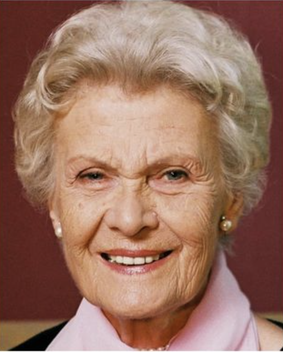
Anne-Marie Blanc was a Swiss film and television actress, style icon and was commonly referred to as "The Grand Dame of the Swiss Film". Her granddaughter is the actress Mona Petri.

Gilberte de Courgenay is a 1942 Swiss biographical film about Gilberte Montavon directed by Franz Schnyder and starring Rudolf Bernhard, Anne-Marie Blanc and Zarli Carigiet.

Heinrich Gretler (1897–1977) was a Swiss film and television actor, who also starred on stage at the Bernhard-Theater in Zurich.

Via Mala is a 1961 West German drama film directed by Paul May and starring Gert Fröbe, Joachim Hansen and Christine Kaufmann. It is an adaptation of the 1934 novel Via Mala by John Knittel, which had previously been made into a film in 1945. After a tyrannical father in a small Swiss village is killed, almost everyone he knows comes under suspicion of having murdered him.

Inquest is a 1931 German crime film directed by Robert Siodmak and starring Albert Bassermann, Gustav Fröhlich and Hans Brausewetter. Along with another film that Siodmak made the same year Storms of Passion, it anticipates the later development of film noir. It was made by German's largest studio Universum Film, with sets designed by art director Erich Kettelhut. Paul Martin, who soon after emerged as a leading director, was assistant director to Siodmak on the film. It was based on a 1927 play of the same title by Max Alsberg and Ernst Hesse. A separate French-language version About an Inquest was also produced.

Rose-Girl Resli is a 1954 West German drama film directed by Harald Reinl and starring Christine Kaufmann, Josefin Kipper and Paul Klinger. The film made the child actress Kaufmann into a star. It was the debut film of the actress Karin Dor, who later married the director. It was shot at the Wiesbaden Studios in Hesse and on location in the vicinity. The film's sets were designed by the art director Heinrich Beisenherz.
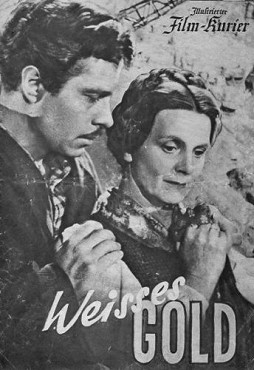
White Gold is a 1949 Austrian drama film directed by Eduard von Borsody and starring Heinrich Gretler, Alma Seidler and Robert Freitag.
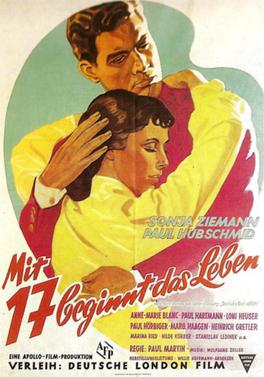
Life Begins at Seventeen is a 1953 West German romance film directed by Paul Martin and starring Sonja Ziemann, Paul Hubschmid and Paul Hörbiger. It was shot at the Tempelhof Studios in West Berlin. The film's sets were designed by the art director Wilhelm Vorwerg.

Captive Soul is a 1952 West German drama film directed by Hans Wolff and starring Attila Hörbiger, Anne-Marie Blanc and Adrian Hoven. It was shot at the Bavaria Studios and on location in Munich and Bayreuth. The film's sets were designed by the art director Max Mellin.
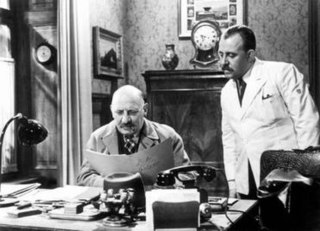
Madness Rules is a 1947 Swiss crime film directed by Leopold Lindtberg and starring Heinrich Gretler, Heinz Woester and Elisabeth Müller. It is based on the 1936 novel of the same name by Friedrich Glauser. Lead actor Gretler reprised his role of the policeman Jakob Studer from the 1939 film Constable Studer, also adapted from a Glauser novel.
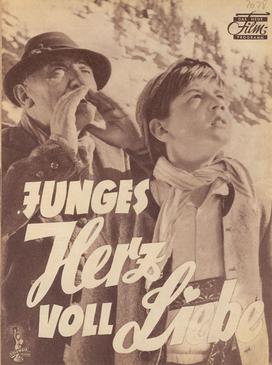
Young Heart Full of Love is a 1953 West German family drama film directed by Paul May and starring Heinrich Gretler, Hans Brenner and Lore Frisch. Much of the film was shot on location in and around Obergurgl and the Ötztal Alps in the Austrian Tyrol.

Roses in Tyrol is a 1940 German musical comedy film directed by Géza von Bolváry and starring Hans Moser, Marte Harell, and Johannes Heesters. It is based on the 1891 operetta The Bird Seller by Carl Zeller, which has been turned into several films.

The Last Shot is a 1951 West German historical drama film directed by Franz Seitz and starring Angelika Hauff, Viktor Staal and Heinrich Gretler. Set in rural Southern Germany, it is part of the post-war genre of heimatfilm. It was made by a Munich-based independent company at the Bavaria Studios. It was produced by the director's son Franz Seitz. Location shooting took place around the Schliersee in Bavaria. The film's sets were designed by Ernst H. Albrecht and Arne Flekstad.

Spring Song is a 1954 German-Italian drama film directed by Hans Albin, and starring Anne-Marie Blanc, René Deltgen, and Albert Lieven.

Off the Rails is a 1921 German silent drama film directed by William Karfiol and starring Wilhelm Diegelmann, Ernst Hofmann and Erra Bognar. The film's sets were designed by the art director Eduard Nickler. It premiered at the Marmorhaus in Berlin.

















